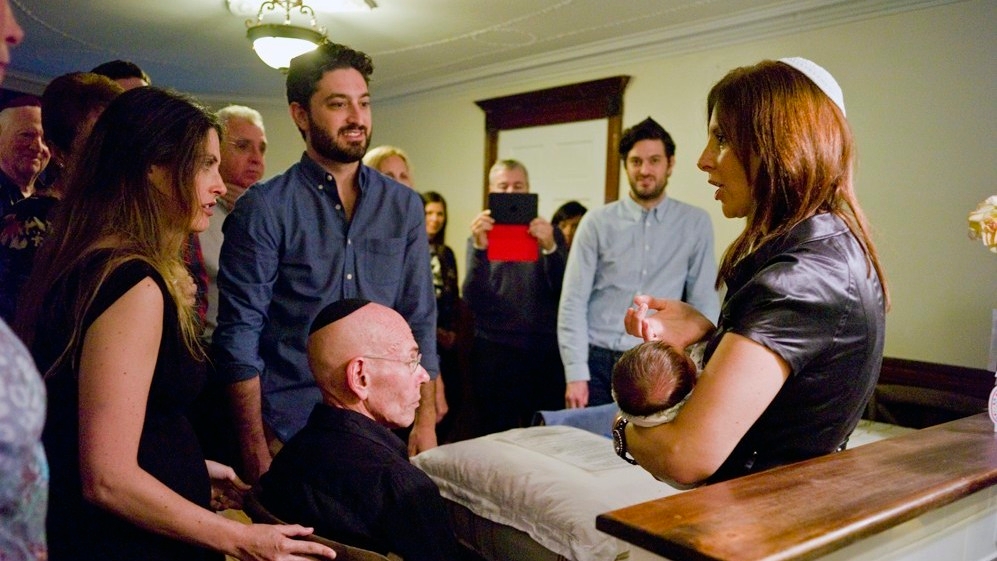In the Middle Ages, a custom arose that 12 candles were lit at the brit, signifying the 12 tribes of Israel into which the infant is inducted. The child is enveloped in the embrace of community. While the brit was traditionally a celebration involving the male infant, increasingly today covenant ceremonies are created for daughters. Parents are encouraged to further personalize the covenant by writing their own dreams for their child, their commitments to provide a family environment that will nourish the child’s growth. (That statement of aspiration at the day of the [welcoming the child into the] covenant may be read 13 years later on the day of the child’s bar/bat mitzvah.) The infant is given a name, and the traditional benediction is recited: “As the child has entered the covenant, so may he/she enter the world of Torah, marriage, and the practice of good deeds.” The benediction contains the threefold goals of the human being in its spiritual journey. Whatever the chosen vocation or profession may be, a person’s spiritual career should include the quest for moral wisdom, consecrated love, and the practice of justice and mercy.
Traditionally, the father is bound to see to it that his male child is circumcised. If there is no father present or if the child should have a father who does not see to it that he is circumcised, the obligation falls upon the beit din, the representatives of the Jewish community. If the child should be an orphan and have no father [the technical, traditional Jewish definition of an “orphan”], a moving prayer is recited: “Thou God of all flesh, father of orphans, be Thou a father unto him and he will be a son unto Thee. May his entering into the covenant be a comfort and a solace to his mother and all his family.” That compassionate prayer reminds us that the community plays a responsible role in the rites of passage. The minyan, ten Jews [traditionally, ten men] above the age of thirteen, is the minimum required for congregational worship and public Torah reading.
In Jewish thought, holiness involves community. This precept is derived from the verse in Leviticus (22:32) in which God declares, “I will be sanctified among the children of Israel.” God is sanctified not in a holy place but in a living community. Communion with God is found through community. There are, of course, acts of holiness in solitariness. But we cannot as easily come to God, leaping vertically out of the skin of our insular individuality. We come to God, as it were, horizontally.
In the absence of a father, the community assumes responsibility for fulfilling the covenant. “Even if my father and mother abandon me, the Lord will take me in” (Psalms 27:10). The community, in God’s stead, takes on that role. The interdependence of self and community is further evidenced in the Talmud: “If a community is in trouble, let no one say, ‘I will go to my house, eat and drink, and declare peace with you my soul'” (Babylonian Talmud, Ta’anit11a).
With your help, My Jewish Learning can provide endless opportunities for learning, connection and discovery.
The birth of a child summons the family together. The parents assign the child a name, which includes the name of the father and mother. The severed umbilical cord does not detach the child from the family, and at the brit the family acknowledges its mutual attachment to the child and to the community. The boundary of the self does not end at the periphery of the body. The members of the family who surround the infant recall their dependence, their need for the mutual comfort, protection, and wisdom of mishpacha [family]. Through the ritual covenant of the child, the members of the family are re-covenanted.
Reprinted with permission from Finding Each Other in Judaism.
Torah
Pronunced: TORE-uh, Origin: Hebrew, the Five Books of Moses.



